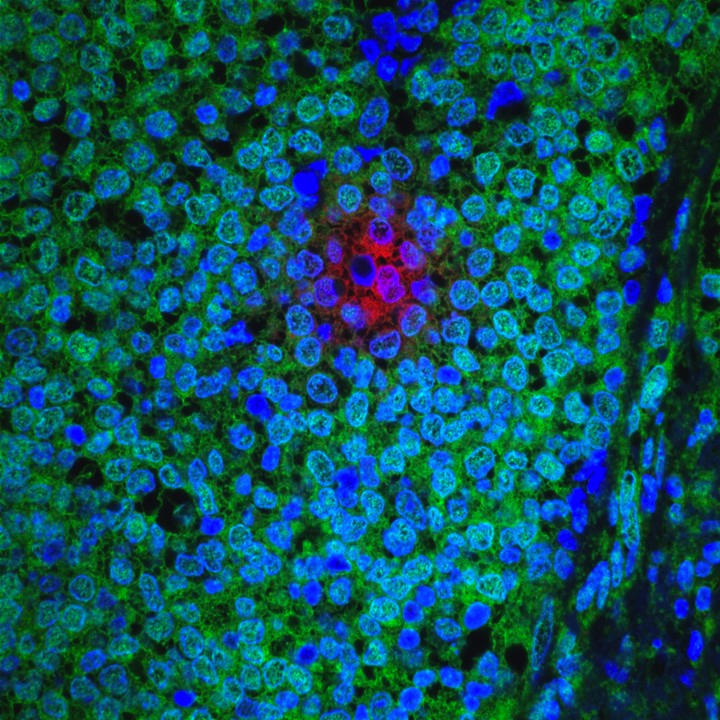Postmenopausal women with hormone-receptor positive, HER2-negative metastatic breast cancer who received ribociclib plus letrozole (Femara®) as a first-line treatment survived longer without their disease progressing (progression-free survival) than women who received letrozole alone, according to the interim results of a phase III clinical trial.
Gabriel N. Hortobagyi, M.D., of the University of Texas MD Anderson Cancer Center, and his colleagues published their findings on October 6, 2016, in the New England Journal of Medicine.
At a median follow-up of 15.3 months, the median progression-free survival in the ribociclib group had not yet been reached, whereas the median progression-free survival in the placebo group was 14.7 months.
Ribociclib inhibits two proteins—cyclin-dependent kinase (CDK) 4 and CDK6—that are abnormally active in certain types of cancer, driving the growth of tumor cells.
Another CDK4/6 inhibitor, palbociclib (Ibrance®) (Ibrance®), is approved to be used with letrozole as first-line therapy for HR-positive, HER2-negative breast cancer that is advanced or has metastasized and with fulvestrant (Faslodex®) as second-line therapy for HR-positive, HER2-negative breast cancer that is advanced or has metastasized.
“Adding a CDK 4/6 inhibitor to endocrine therapy as the first-line treatment of metastatic breast cancer should be the standard of care,” said Alexandra Zimmer, M.D., of NCI’s Center for Cancer Research, who was not involved in the study. “It is too early to determine if there is an improvement in overall survival,” she added.
Researchers ended the trial, which was funded by Novartis Pharmaceuticals, early after a planned interim analysis of the data showed a significant benefit in favor of the ribociclib arm.
After 18 months, the rate of progression-free survival was 63.0% in the ribociclib group, compared with 42.2% in the placebo group. A greater share of the patients in the ribociclib group, however, discontinued the therapy because of adverse events: 7.5% versus 2.1% in the placebo group.
The improvement in the duration of progression-free survival was associated with a higher rate of myelosuppression among patients in the ribociclib group.
The patients receiving ribociclib had significantly more neutropenia (59.3% versus 0.9%) and leukopenia (21.0% versus 0.6%) than patients in the control group. Infections were common in both the ribociclib group (50.3%) and the control group (42.4%).
“This has been true both for ribociclib and palbociclib,” said Dr. Zimmer. “Most infections are not serious," said Dr. Zimmer, "but this bears careful monitoring in patients who are receiving these drugs.”
